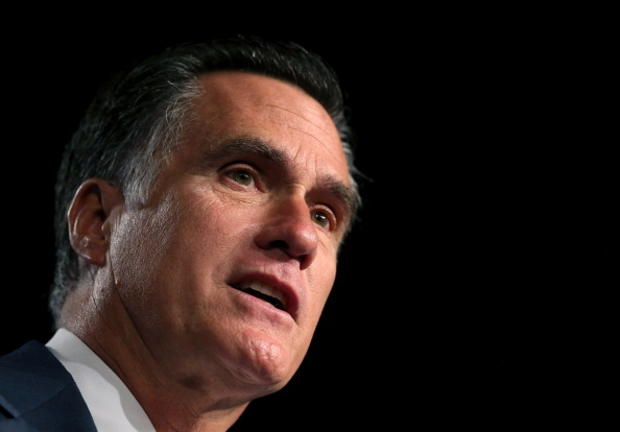On Syria, Romney offers criticism but few distinctions
(CBS News) For months, Mitt Romney has characterized President Obama's response to the uprising in Syria as feckless and naive.
Although he has stopped short of supporting the airstrikes that Republican Sens. John McCain and Lindsay Graham have advocated, in an interview Monday on CNBC, Romney portrayed the president's handling of Syria as emblematic of Obama's overall failure to project strength in the Middle East.
"America should've come out very aggressively from the very beginning and said Assad must go," Romney said.
Obama has been publicly calling for the Syrian leader's ouster since last August, but a growing chorus of Republicans has joined Romney in accusing the administration of having been slow to react.
Elliott Abrams, a former foreign policy official in the Ronald Reagan and George W. Bush administrations, asserted that Romney would have done more to align himself from the beginning with the rebel forces.
"We've been reading that in the last several weeks that CIA people have been on the ground in neighboring countries making contacts with the opposition and trying to figure out who they are and who's trustworthy," said Abrams, a senior fellow for Middle Eastern Studies at the Council on Foreign Relations. "It's unimaginable to me that in any Republican administration that would be happening in June 2012 rather than June 2011."
(Romney speaks at the VFW.)
Romney's own criticisms of Obama's handing of the situation have echoed his previous condemnations of the president's decisions regarding almost every other international hotspot, perhaps most prominently the 2011 rebellion in Libya that led to Moammar Gaddafi's demise. Although his handling of international events has been one area in which the president has consistently drawn high marks in polls of voters, Romney's comments on Syria obviously reflect a contrary view.
The presumptive Republican presidential nominee told CBS News' Jan Crawford recently that Obama deserved an "F" on foreign policy and Romney has vowed that he would do "the opposite" of what the president has done in the international realm. That blanket condemnation has served to spare Romney the inconvenience of laying out precise foreign policy prescriptions.
He made only passing reference to Syria in his foreign policy speech at the VFW convention in Reno, Nev., on Tuesday, for instance, apparently reflecting that broader reluctance to delve deeply into specific actions.
Shadi Hamid, a Brookings Institution fellow at the Saban Center for Middle East Policy, characterized Romney's stance on Syria as "extremely vague."
"Romney doesn't have a Syria policy, and he won't have one anytime soon," he said.
Hamid, a vocal supporter of direct American military intervention in that troubled nation, added that Romney's tough rhetoric on the issue was nonetheless significant.
(President Obama also spoke at the VFW convention this week.)
"The difference in tone is important," he said. "I think if Romney was president today, there would be more pressure on him to intervene militarily because his support base is different, and there's generally more support for military intervention in Republican circles."
But as far as how Romney would handle the situation at this point, it is difficult to ascertain any meaningful difference with the current administration's actions.
Romney in May challenged Obama to "work with partners to organize and arm Syrian opposition groups," but he has repeatedly declined to provide any details as to how he would take that step in a way distinct from what the current administration is already doing. According to a Washington Post report in May, the United States has been actively engaged in the process by which Syrian rebels obtain arms.
The Post reported that the U.S. has been "coordinating in part" an effort to distribute "significantly more and better weapons" to rebel forces, in addition to the humanitarian and "nonlethal" aid that the Obama administration is providing to opposition forces.
Asked whether the Republican favored arming the Syrian rebels directly, Romney spokesperson Andrea Saul gave a carefully worded response.
"Gov. Romney has called for U.S. participation in identifying and organizing the opposition and in facilitating the delivery of arms to elements of the opposition from partners such as Turkey and Saudi Arabia," she told RCP.
The Obama campaign has been eager to engage in a foreign policy debate that it believes favors them, and aides to the president have amped up their own charges that Romney has offered little more than knee-jerk condemnations of the president's handling of Syria and other key international issues.
And even though the crisis Syria will inevitably be a major topic of discussion during the Republican's impending meetings with leaders in the U.K and Israel, the Romney campaign has vowed that he would refrain from criticizing the president directly while on foreign soil.


